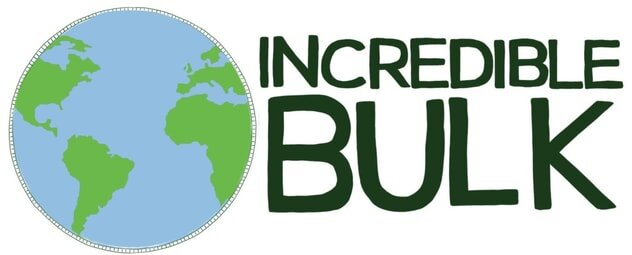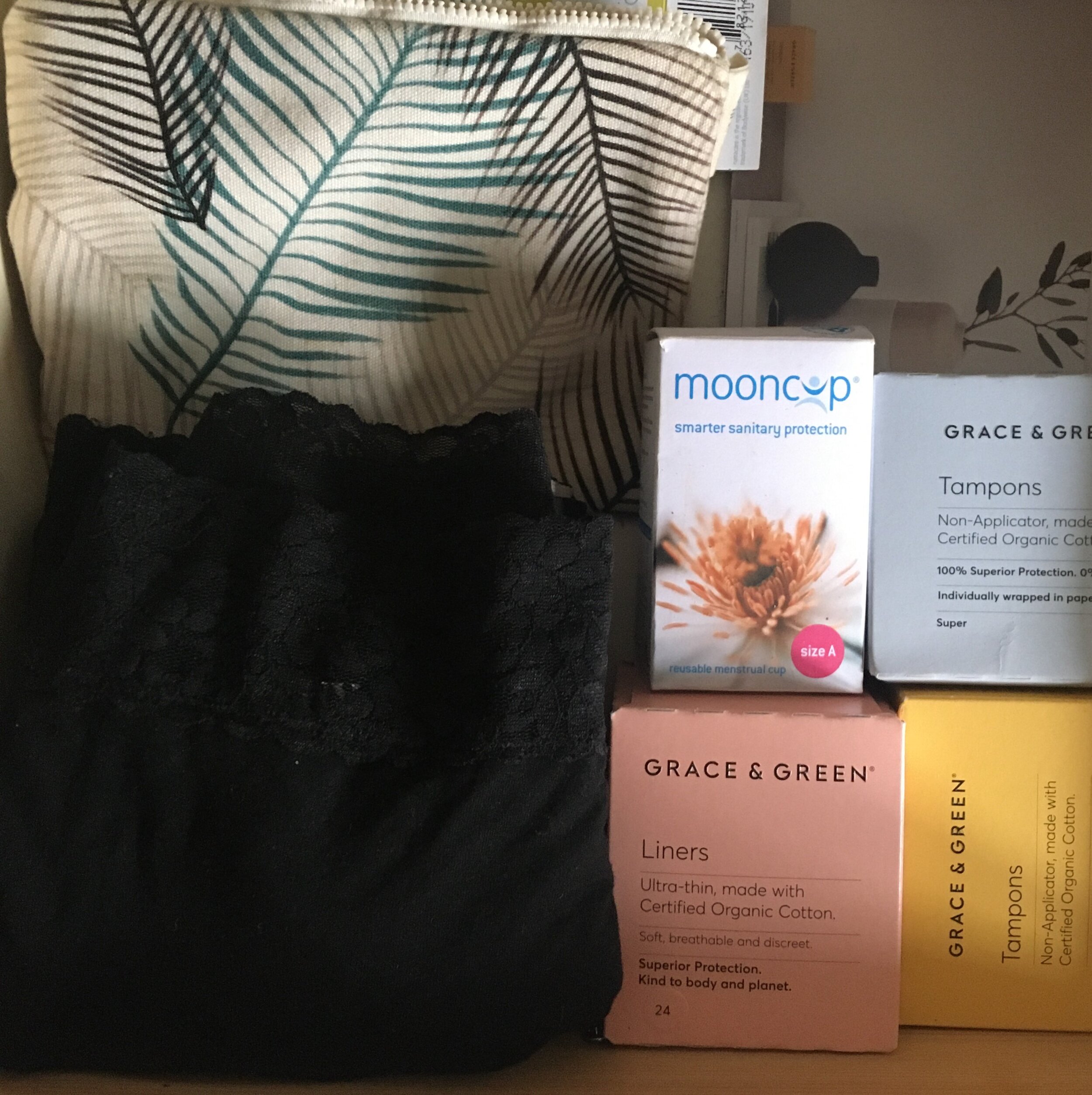plastic free periods
/While we may not currently stock plastic free period products at the moment we wanted to share info on Gemma’s favourite plastic free brands.
Why do plastic free and reusable period products matter?
City to Sea found that menstrual products are currently the 5th most common item found on European beaches, making them more widespread than single-use coffee cups, cutlery or straws. You may also be surprised to learn that a big-brand pack of 14 menstrual pads contains the same amount of plastic as 5 carrier bags and that 200,000 tonnes of menstrual waste is landfilled each year in the UK. To learn more check out their short film Turning Tides and their Plastic Free Periods Campaign. With 4.3 billion menstrual products, including liners, pads, and tampons, being used every year in the UK, and the average womxn using between 14,000 and 18,000 disposable pads, tampons and pantyliners during their lifetime, making the switch to plastic free and reusable period products is a giant step on our journey to zero waste living.
Gemmas favourite products:
Reusable period pants: These are pretty incredible and massively reduce the amount of single use period products you need to use (WUKA claim with one pair of WUKA you are saving 100 tampons from going to landfill, Flux Undies tell us you’re reducing your waste by 99%). Gemma hasn’t had any problems when using them and has found them a great alternative to reusable menstrual cups which she didn’t get on with. She first tried WUKA, they lasted well for a year but then did need replacing, they’ve now been down-graded to bedtime use only. For her second set she bought from FLUX Undies and has been really impressed with the design and quality, they also donate a reusable cloth pad to a girl in need for every purchase you make. Made My Wardrobe has recently launched a make your own kit for any crafty readers out there and Gemma has also got her eye on a Modibody swimsuit for her cold water swims! One piece of advice would be that these are not for the queasy, to clean properly they need to be rinsed first and then washed, Gemmas top tip is to rinse when you have a shower, simply place at the bottom of the shower and they’ll rinse through while you shower.
Tampons and pads: While the period pants are great and get used most days there are some occasions (currently swimming until that investment is made!) where tampons and pads do come in useful. Gemma has been on the search for a 100% plastic free tampon for a while now and was excited when Grace & Green announced they had removed all plastic packaging from their range opting for paper instead. Their products are well made, 100% organic and plastic free. Remember don’t flush pads, tampons, backing strips, packaging, or pantyliners down the toilet, the best ways to dispose of an organic period product is to throw it into the bin, recycle the wrapper, or add the tampon to the compost.
Other reusable options available:
Reusable pads: Gemma preferred the pants due to the improved fit over the pads, she found most of the reusable pads a bit bulky and a little uncomfortable to wear but definitely worth a try if you haven’t tried them yet! There are quite a few independent makers in Cornwall selling them or you could also look to make your own!
Reusable menstrual cups: One of the first reusable period products on the market, widely available from various brands and now in some different designs too. Sea + Flo are a Cornish based brand!
Other than looking to switch up your period products there are other ways to get involved with spreading the word on plastic free periods:
#endperiodplastic by signing campaigner Ella Daish petition to Make all Menstrual Products Plastic Free.
Become a period detective for City to Sea and share what period products you find in your local supermarket.
Campaign with WUKA to get period pants recognised under the 0% period tax.
Get your schools and colleges involved, did you know that schools and colleges in England can now order FREE period products for their students, as part of a government scheme which was launched in January 2020 to help end period poverty. But only 41% of schools to date have taken up the scheme. Look to get your school or college involved or write to your MP asking for them to ensure schools in their area are taking up the offer as schools need to take up the scheme by December 2020.
Donate to end period poverty. Bloody Good Period share products to those who can’t afford them, and provide menstrual education to those less likely to access it. You can donate money or if you are keen to share plastic free products donations of unopened packets of pads can be sent directly to Bloody Good Period, SafeStore, Alexandra Palace Way, London N8 7HP. Action Aid who work with women and girls living in poverty are looking to end period poverty and are running workshops to teach girls how to make their own reusable pads.
Spread the word, check out Environmenstrual Week from Women’s Environmental Network and Menstrual Hygiene Day for further information.

